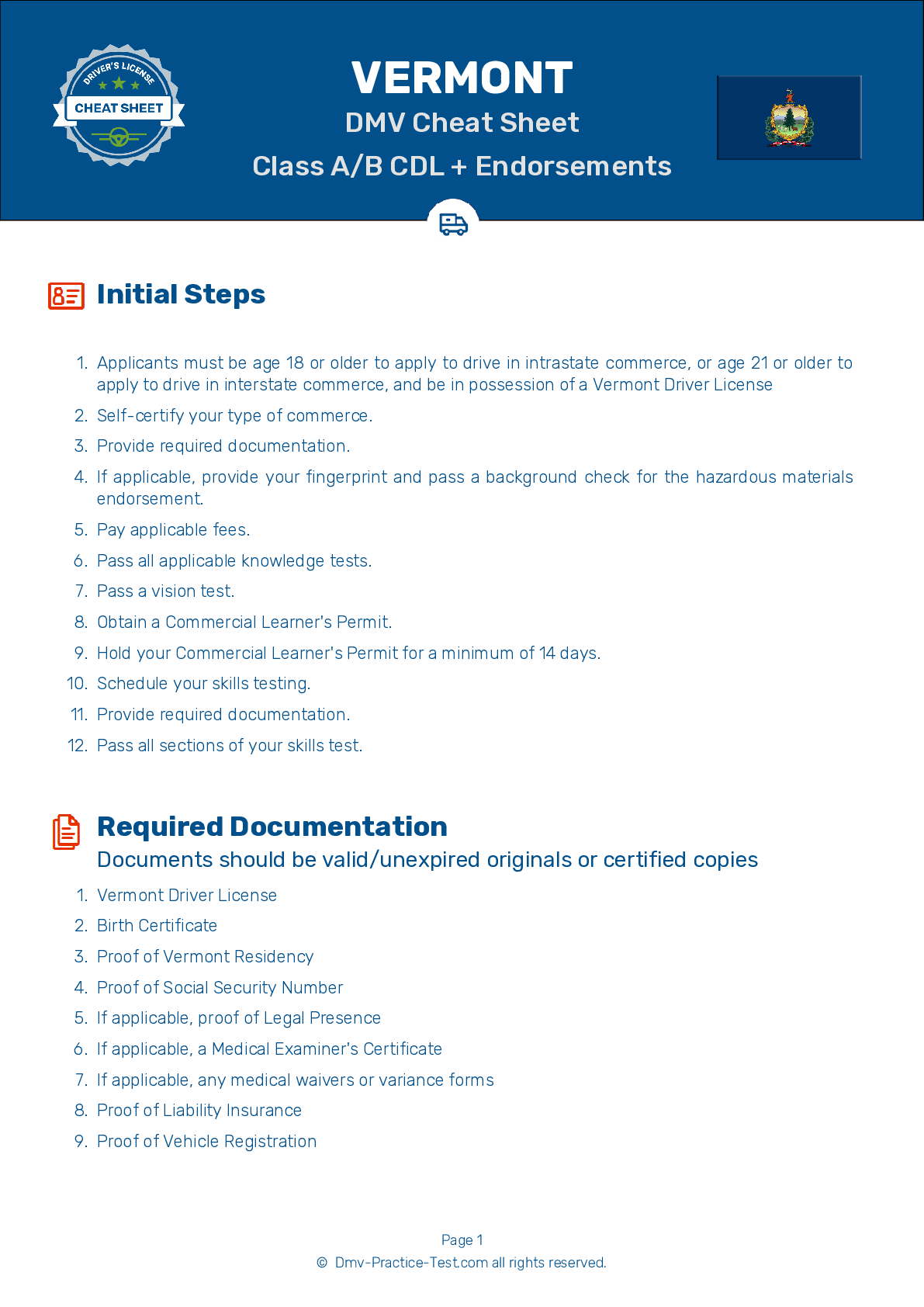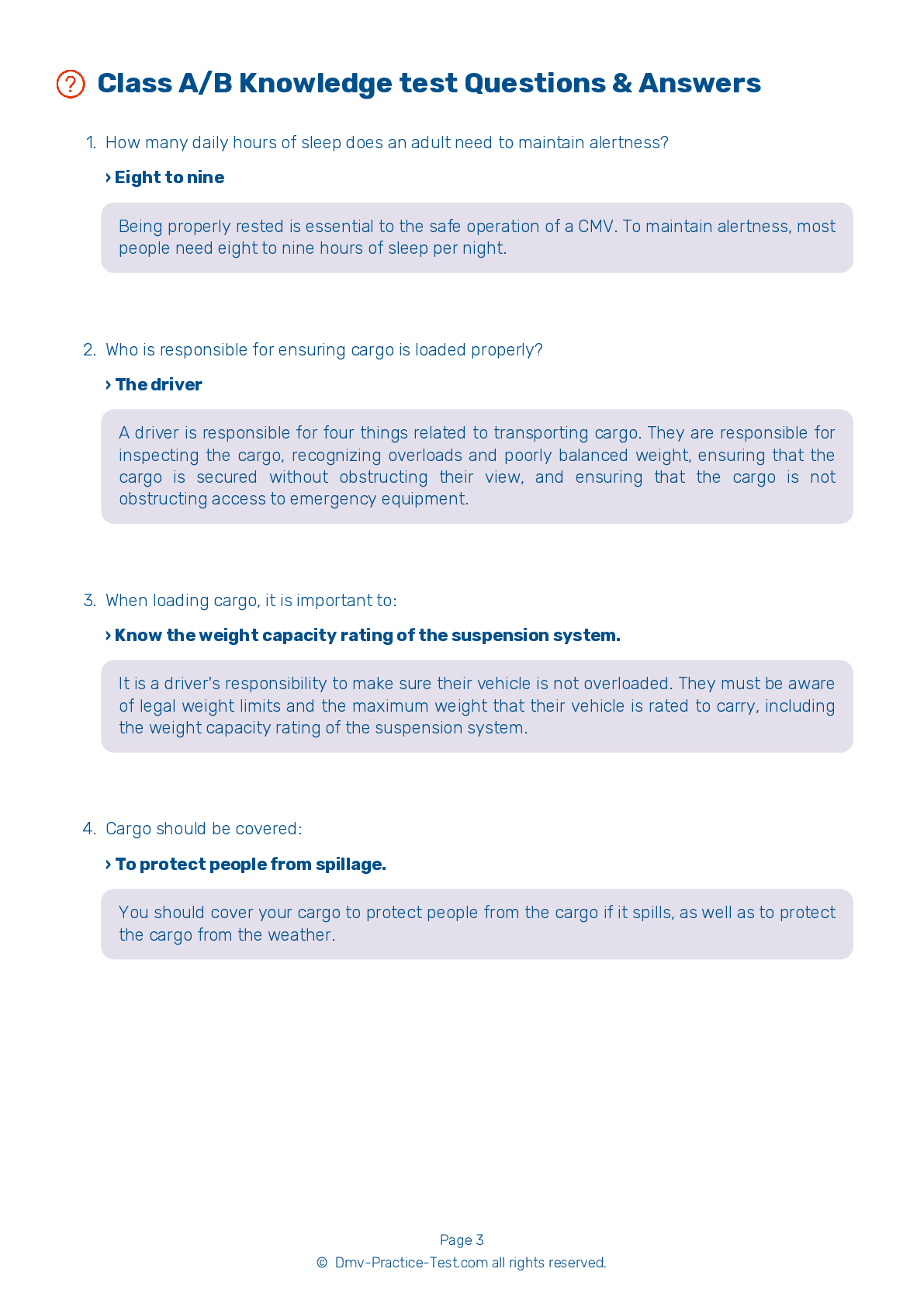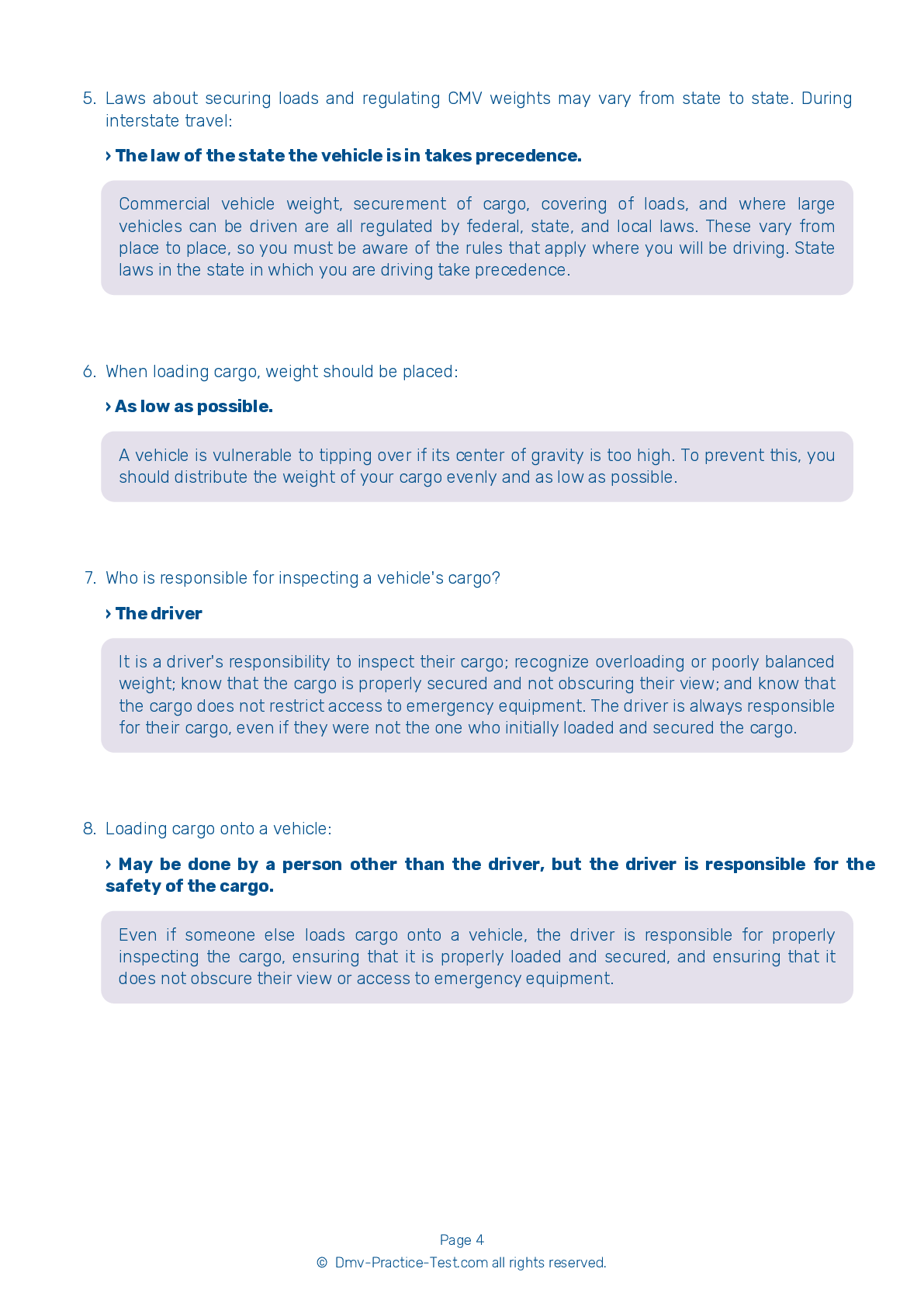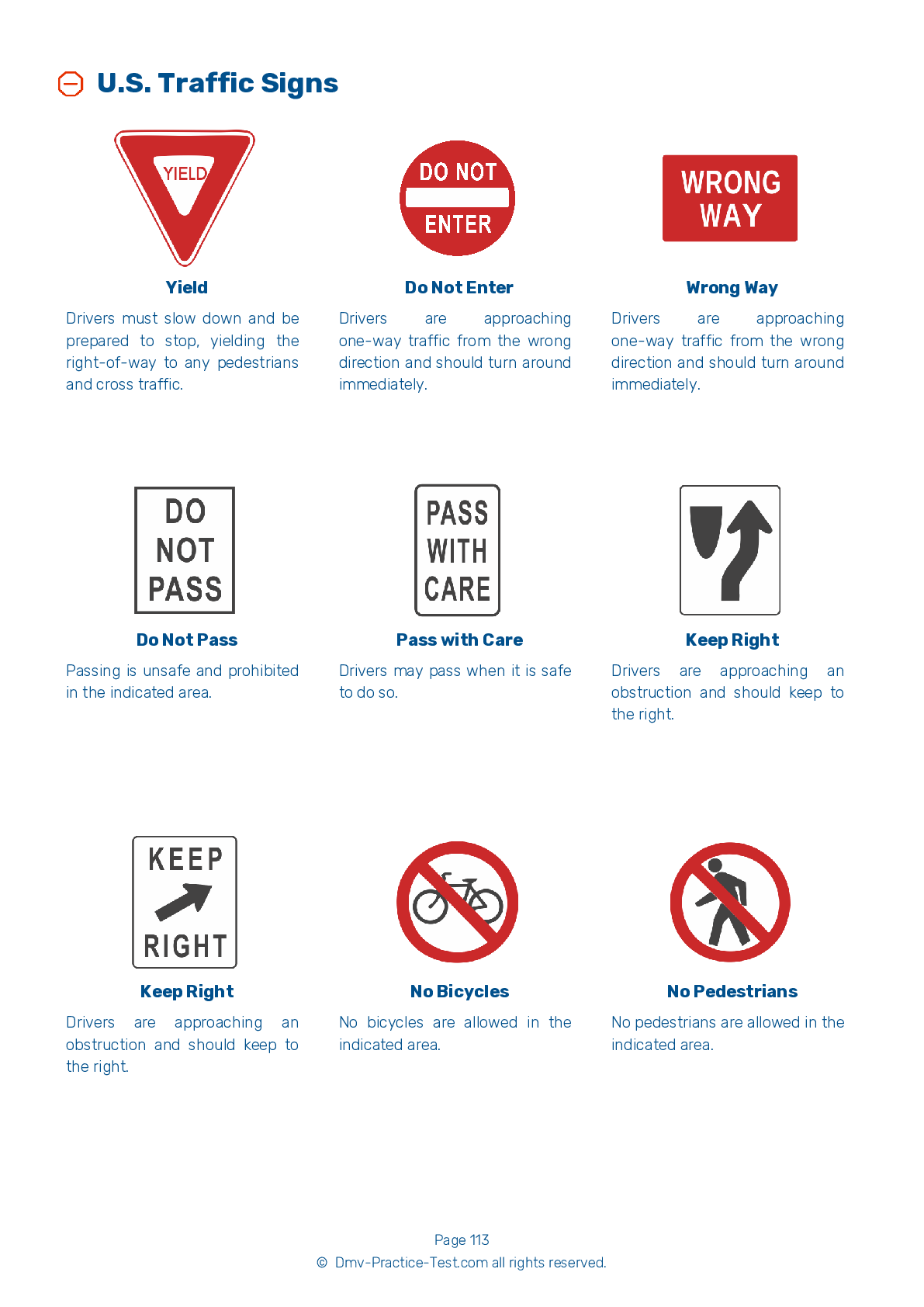Knowledge Test Class B #1
Class B Driving Test | Vermont 2025 #1 Page 5 of 7
Train for FREE online with our Vermont class B license test. The official exam test consists of several obligatory parts, with all of them checking your knowledge of different blocks of road rules. If you need to obtain a VT CDL class B permit in 2025, practice as much as possible. Free sample tests published on our website will help you check and improve your knowledge and boost your grades. Please bear in mind that CDL class B requirements may vary from state to state.
50
40
20
29 . If you remain in neutral for too long while switching gears:
If you remain in neutral for too long while switching gears, you may have difficulty putting the vehicle into the next gear. If this happens, do not try to force the gear shift. Instead, return to neutral, release the clutch, increase the engine speed to match the road speed, and try again.
30 . What can happen if the air pressure gets too low in an air brake system?
Pressing and releasing the brake pedal unnecessarily can let air out of the braking system faster than the compressor can replace it. Air brakes may cease to work effectively if the pressure becomes too low.
31 . Backing with a trailer is dangerous because:
Trailers are not made to be driven in reverse.



